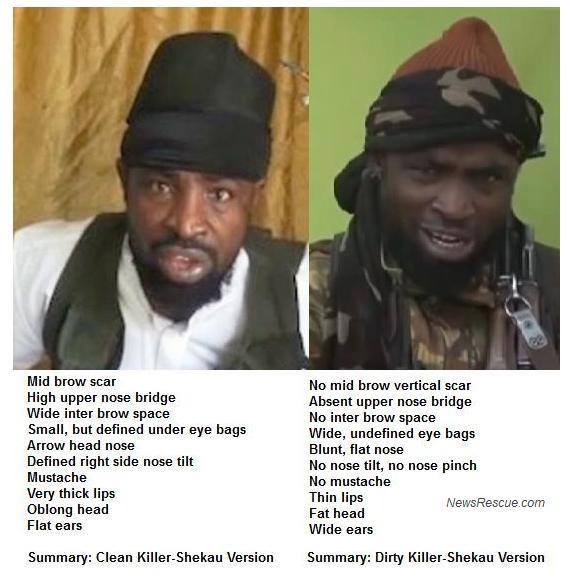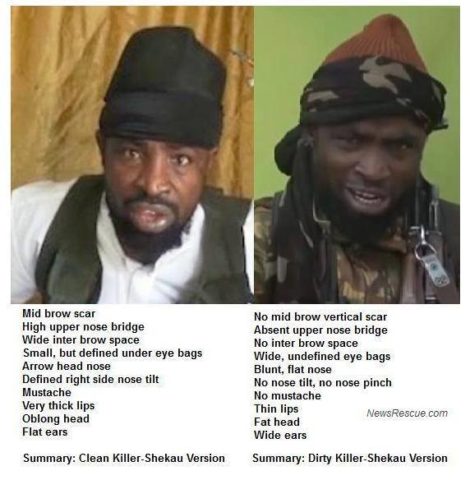Nigerians are angry at their government and themselves. It is not so much because of the unresolved kidnaping of the Chibok girls, but the exposure of the weakness and inability of their government brought about by this incident, and the mockery and frustration of the international community directed against Nigeria and its government which did not help matters either. However, one is left to ask why now? Did Nigerians not know that their governments have been operating in an illusion, in a make-believe, and under a camouflage of its true potential? Or, is it that Nigerians themselves chose, for a long time to exist under such illusions and camouflage? An illusion with realistic trappings strong enough to even deceive the international community; a Houdini act so well orchestrated over the years that one would have to be part of the act to decipher the illusory aspect.
No. It is not true that Nigerians were/are unaware that their nation is not as great as its leaders have always projected it to be. They do know the limitations of their governments, therefore their nation; they do know that beyond the shores of the African continent, Nigeria can stand at shoulder level with a few poor Asian, Middle Eastern, and South American countries, and that within the continent itself Nigeria can rub shoulders – at least, on paper – with majority of the member AU nations, except the real giants like Egypt, South Africa. They had believed that, in the words of the late K.O. Mbadiwe, if the “come ever comes to become, the happen will happen”; that is, if Nigeria ever finds itself in a situation that challenges its very existence as a nation, the leadership at that time will use all the resources and might at its disposal to save the nation. That has always been the belief and conviction among Nigerians, Africans, and the world community as a whole, until the emergence of Boko Haram and the April 14 and 15, 2014 incidents.
The bombing of the Nyanya motor park and the subsequent kidnaping of over 200 girls from a government secondary school in Chibok, Borno state were in themselves not a wake up call to the Nigerian government, Nigerians themselves, or the international community, because the Boko Haram sect have always used bombing and kidnaping as tools of intimidation and terrorism. To Nigerians and their government, these were just another set of incidents, and all that is required of the president is another speech of assurance to the nation of his government’s determination to bring the perpetrators to book; a visit to victims at various hospitals followed up with promises of compensations, and a jet-off to a political party event. What no one envisioned was the length of time it would take for the government to realize and admit that, in fact, it lacks the resources to either solve the Nyanya bombing or rescue the abducted girls by its own efforts. That was an eye-opener for Nigerians and the world; that was when and how Nigerians began to worry that, contrary to their beliefs, their country is not capable of rescuing itself from itself. It dawned on the international community that this nation, the giant of Africa, the most populated black nation in the world always projected as the one that will lead all blacks everywhere to the promised land, is truly a facade; an empty vessel, a Shakespearian tale told by an idiot.
While the ordinary Nigerian and the world are just now being exposed to the limitations of the Nigerian nation, the leadership over the years, have always known these limitations, because it was their handiwork that left that nation naked, vulnerable, and a laughing stock of the international community today. They created the Houdini illusory acts, sowed the camouflage the nation was cloaked in, and gutted the bowels of its security agencies, leaving the hollow sound one hears when one beats on the nation’s stomach, as was recently done by the Boko Haram wind that exposed the anus of this chicken of a nation. The come had finally come to become, and the expected happening did not happen.
Today, the international community, convinced that Nigeria needs help, have converged on the nation to help it find itself. Their presence, though welcomed by the government and the people, have brought disgrace to not only the Jonathan administration, but to those before it; because, the Boko Haram problem, and many others before it, did not start today, and the rot of the nation did not start in Borno, Yobe, or Adamawa states. It started in 1979 and before, and progressed exponentially with every new administration. Our nation has become the joke of comedians all over the world; late night shows and lawmakers in foreign nations have dismissed the Nigerian government as non-existent, even though it was democratically-elected, and the countinuous saga of the missing 200 girls have added fodder to the canons of those African nations who, in the words of the late Ghadafi, believe that “some African nations are just big for nothing”.
It is my hope that the next generation of Nigerian leaders will learn a lesson, or two, from what the nation is going through today; the perception of Nigerian in the eyes of the international community today, not just as a corruption-riddled nation, but one that is weak and rudderless in the face of crises; and, the frustration of its citizens on realizing the same about its nation, and craft a different path befitting a nation of its abundant human and material resources. It may take generations, just like it took to run the nation down, but it is doable.








